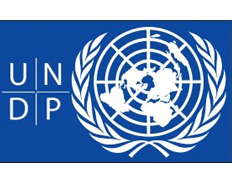The United Nations Development Programme says no fewer than 93,000 women and youth farmers have benefited from its agriculture programme in seven Nigerian states.
Ms Rhoda Dia, Project Manager, United Nations Development Programme Global Environment Facility Integrated Approach Programme on Food Security (GEF-IAP-FS) in Nigeria, made this known on Friday at a Multi Stakeholders meeting in Abuja.
Dia said the initial target of the programme was to reach 42,000 smallholder farmers, basically women and youths, including 28,000 youths and 14,000 women.
She said it was, however, doubled and had cumulatively reached about 800,000 beneficiaries indirectly.
While speaking with journalists, Dia said the programme was implemented through Women Farmers Association of Nigeria (WOFAN) in Kano, Jigawa, Katsina, Benue, Nasarawa, Adamawa and Gombe covering 14 LGAs and 70 Communities.
“It was discovered that the programme recorded a 40 to 50 per cent increase in food production and some climatic conditions that affected products were also mitigated.
“This platform would have put a strategy in place to ensure that the activities of these multi-stakeholders platforms are carried out and sustained; we don’t want the platform to close because the budget has closed.
“This project is over seven million dollars for a period of five years. The fund is from Global Environment Facility (GEF) which targeted 42,000 smallholder farmers, basically women and youths, which include 28,000 youths and 14,000 women.
“So far, we have reached 93,000 of our target, so we have doubled the target and have indirectly reached over 800,000 beneficiaries,” she said.
The Executive Director of WOFAN, Hajia Salamatu Garba, said that one of the successes recorded was the mobilisation of farmers and grouping of them into functional co-operatives.
She said WOFAN had 42,000 farmers in seven states and they were able to group and train them to work together as a team to achieve great impact in agriculture.
She said that they were able to sensitise women to go into activities that would benefit the communities, such as processing.
According to her, Nigerian rice is now becoming competitive.
“Now women have improved processing and the quality of their rice is good.
“After all these were achieved, we went into a multi-stakeholder platform where different agricultural sectors came together so that we have a common voice to address simple issues that affect the country.
“For instance, rice importation, seed is a problem and we are looking at how Nigeria will popularise improved varieties that suit different regions.
“We were able to transform agriculture to make the farmers aware that subsistence farming is not enough to keep the family anymore, we have to make it an agribusiness.
“We were also able to see the importance of fortifying our food varieties and adding value; for instance, rice can be fortified.
“We can use rice with other products like groundnut to make different kinds of meals that can address malnutrition and it will increase income for farmers,” she said.
Speaking about the sustainability of the UNDP-GEF-IAP-FS, Hajia Garba said people that were trained had become peer leaders in their communities.
She said each member that was trained had another 30 sets of women to impact the skills.
She said those that got input grants would have enough to maintain their farms because they were given input grants for one hectare.
“We have community seed producers especially women who have been trained and guided by research institutions to produce their own seed; if this seed is brought closer to the community, it makes it affordable.
“Also they have organisations like the African Agricultural Technology Foundation (AATF), National Cereals Research Institute (NCRI), giving the appropriate seed for them to use”.








